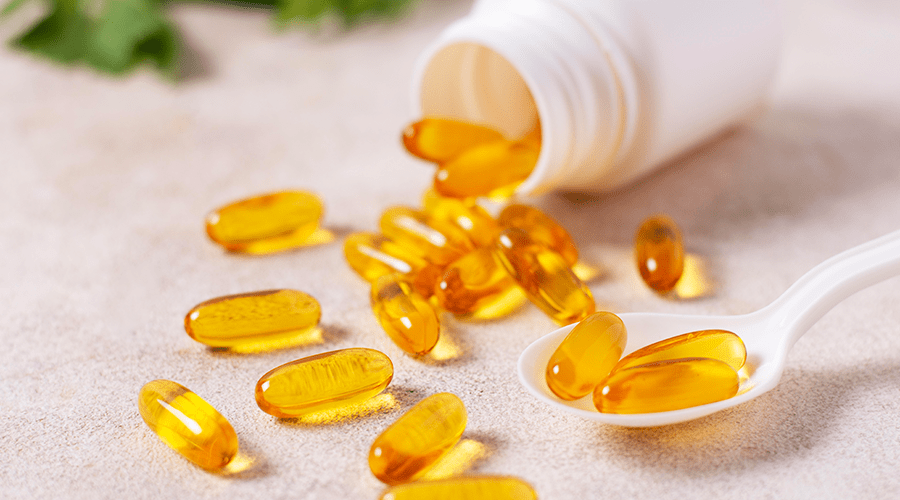For many people, premenstrual syndrome (PMS) can bring uncomfortable symptoms like mood swings, cramps, and fatigue. Fortunately, certain PMS supplements and vitamins may help manage these symptoms by supporting hormone balance. In this article, we’ll explore how these supplements work and which vitamins are most helpful in promoting a more balanced, comfortable cycle.
Why Is Hormone Balance Important for PMS?
Hormones play a key role in regulating the menstrual cycle, impacting mood, energy levels, and physical comfort. When hormones become imbalanced, it can lead to PMS symptoms that are difficult to manage. The right PMS supplements and vitamins help keep hormone levels steady, reducing the intensity of PMS symptoms.
Key Vitamins in PMS Supplements for Hormone Balance
There are several vitamins commonly found in PMS supplements that are known to support hormone balance and ease PMS symptoms. Here’s a look at some of the most effective vitamins:
- Vitamin B6: This vitamin helps the body produce serotonin, a “feel-good” hormone, which can improve mood and reduce irritability.
- Vitamin D: Known for its role in hormone regulation, vitamin D may support balanced estrogen levels, which can help manage PMS symptoms.
- Magnesium: Magnesium can reduce stress and muscle cramps, which often accompany PMS, making you feel more at ease.
- Calcium: This mineral not only supports muscle health but also helps in balancing mood, as low calcium levels have been linked to mood swings.
- Vitamin E: An antioxidant that reduces inflammation and may help with breast tenderness often experienced during PMS.
Together, these vitamins work to support steady hormone levels, helping to reduce PMS symptoms and improve overall well-being.
How Do PMS Supplements and Vitamins Support Hormone Balance?
Hormones fluctuate naturally during the menstrual cycle, but certain vitamins and minerals can help make these changes less extreme. Here’s how PMS supplements and vitamins support hormone balance:
- Reducing Mood Swings: Vitamins like B6 and calcium help produce and regulate serotonin, a key hormone for mood stability. When serotonin levels are steady, you’re less likely to experience emotional highs and lows.
- Easing Physical Discomfort: Magnesium and vitamin E help relax muscles and reduce inflammation, which can ease cramps and bloating.
- Supporting Energy Levels: Vitamin D and B vitamins are essential for energy production. By supporting your energy levels, these vitamins can help you feel less fatigued, even during PMS.
- Improving Stress Response: Magnesium has a calming effect on the nervous system, which helps reduce stress and supports overall hormone balance.
When taken regularly, these vitamins can help reduce PMS symptoms by supporting the body’s natural hormonal rhythm.
How Often Should You Take PMS Supplements?
For the best results, it’s usually recommended to take PMS supplements daily. Consistent intake of these vitamins helps your body maintain steady levels, which is key to managing hormone balance effectively. Here are a few tips:
- Daily Routine: Taking your vitamins at the same time every day can help you remember to stay consistent.
- With Meals: Some vitamins, especially fat-soluble ones like vitamin D and vitamin E, are better absorbed when taken with food.
- Consult a Healthcare Provider: Everyone’s needs are different, so it’s a good idea to talk to a doctor before starting a new supplement routine to ensure it’s safe and effective for you.
Can You Get These Vitamins from Food?
While PMS supplements can be convenient, many of these vitamins are also found in everyday foods. Here’s how to add more of the PMS supplements vitamins to your diet:
- Vitamin B6: Found in bananas, potatoes, and chickpeas.
- Vitamin D: Naturally found in fatty fish like salmon and produced when exposed to sunlight.
- Magnesium: Available in foods like leafy greens, nuts, and whole grains.
- Calcium: Found in dairy products, fortified plant milks, and leafy greens.
- Vitamin E: Present in nuts, seeds, and vegetable oils.
Eating a balanced diet rich in these foods can support your hormonal health naturally.
Are PMS Supplements and Vitamins Safe?
PMS supplements are generally safe for most people when taken as directed. However, it’s important to consider the following:
- Follow Recommended Dosages: Taking too much of certain vitamins, like vitamin D or magnesium, can lead to side effects, so stick to the recommended amount.
- Check for Allergies or Interactions: If you’re on medication or have allergies, consult your healthcare provider to make sure the supplement is suitable for you.
- Monitor Your Body’s Response: Pay attention to how your body responds. If you experience any discomfort or unusual symptoms, stop taking the supplement and talk to a healthcare provider.
Do PMS Supplements Work for Everyone?
While PMS supplements can help many people, everyone’s body is different, and results may vary. Factors like diet, lifestyle, and overall health can influence how well these supplements work for you. It may take a few cycles to notice the full benefits, so be patient and consistent.
Final Thoughts: Are PMS Supplements Worth It for Hormone Balance?
If you’re looking for a natural way to manage PMS symptoms, PMS supplements and vitamins can offer valuable support. By helping to balance hormones, reduce stress, and ease physical discomfort, these vitamins can make the monthly cycle more manageable. Taking them regularly and maintaining a balanced diet may lead to noticeable improvements in how you feel each month.
Whether you choose to add a supplement or focus on foods rich in these vitamins, supporting hormone balance naturally can be a gentle, effective approach to managing PMS.
